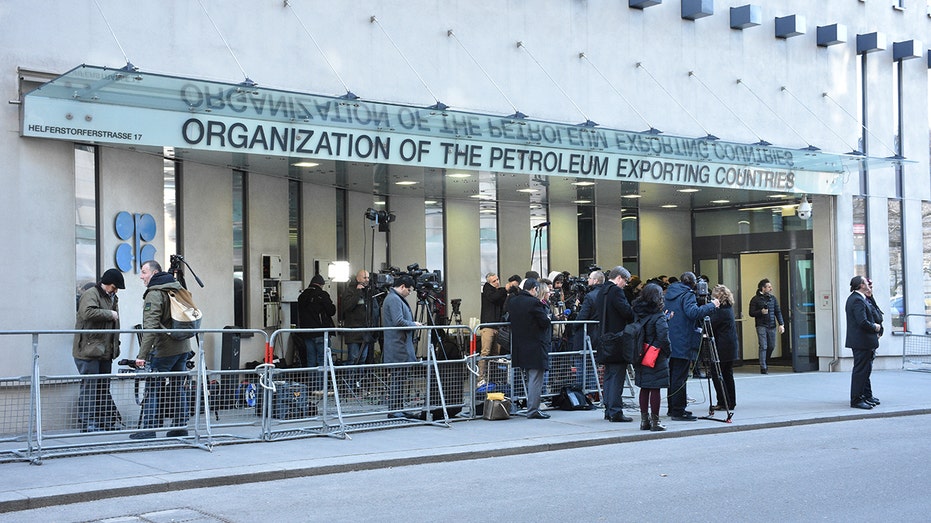Russia, Saudis deadlock over whether OPEC should boost crude output: WSJ
Fox Business Flash top headlines for January 4
Fox Business Flash top headlines are here. Check out what’s clicking on FoxBusiness.com.
Saudi Arabia and Russia deadlocked Monday over whether their producers’ alliance should boost crude output amid a resurgent pandemic, delegates said after a day of talks ended without a deal.
Continue Reading Below
The 13-strong Saudi-led Organization of the Petroleum Exporting Countries met virtually Monday with 10 Russia-led producers, a group that together has been dubbed OPEC-plus, in the first of their monthly meetings to review global oil demand. Last month, they agreed to increase production by 500,000 barrels a day, bringing their net cuts since the start of the pandemic to some 7.2 million barrels a day.
OIL PRICES EDGE LOWER AHEAD OF OPEC MEETING AND OUTPUT LEVEL DISCUSSIONS
On Monday, they were scheduled to decide whether to continue to raise production or stand pat.
Saudi Arabia and most of the broader alliance backed holding steady for at least another month, delegates said. These countries are concerned a new variant of the Covid-19 virus is threatening a resurgence of the pandemic, while vaccination programs are not progressing as fast as expected.
Saudi Arabia and Russia deadlocked Monday over whether their producers’ alliance should boost crude output amid a resurgent pandemic, delegates said after a day of talks ended without a deal. (Photo by Askin Kiyagan/Anadolu Agency via Getty Images) “Even in this general optimistic environment, I want to urge caution,” Saudi Energy Minister Abdulaziz bin Salman said during opening remarks before the online meetings. “Do not put at risk what we have achieved for the sake of an instant illusionary benefit.” OIL DEMAND WILL REACH 'PRE-COVID LEVELS': FORMER SHELL OIL PRESIDENT Moscow, however, pushed for an increase in output by another 500,000 barrels a day, the delegates said. Russia sees oil consumption coming back and is concerned about losing market share to U.S. producers, which are not subject to restrictions, these people said. Click for more at WSJ.com Source: Read Full Article

